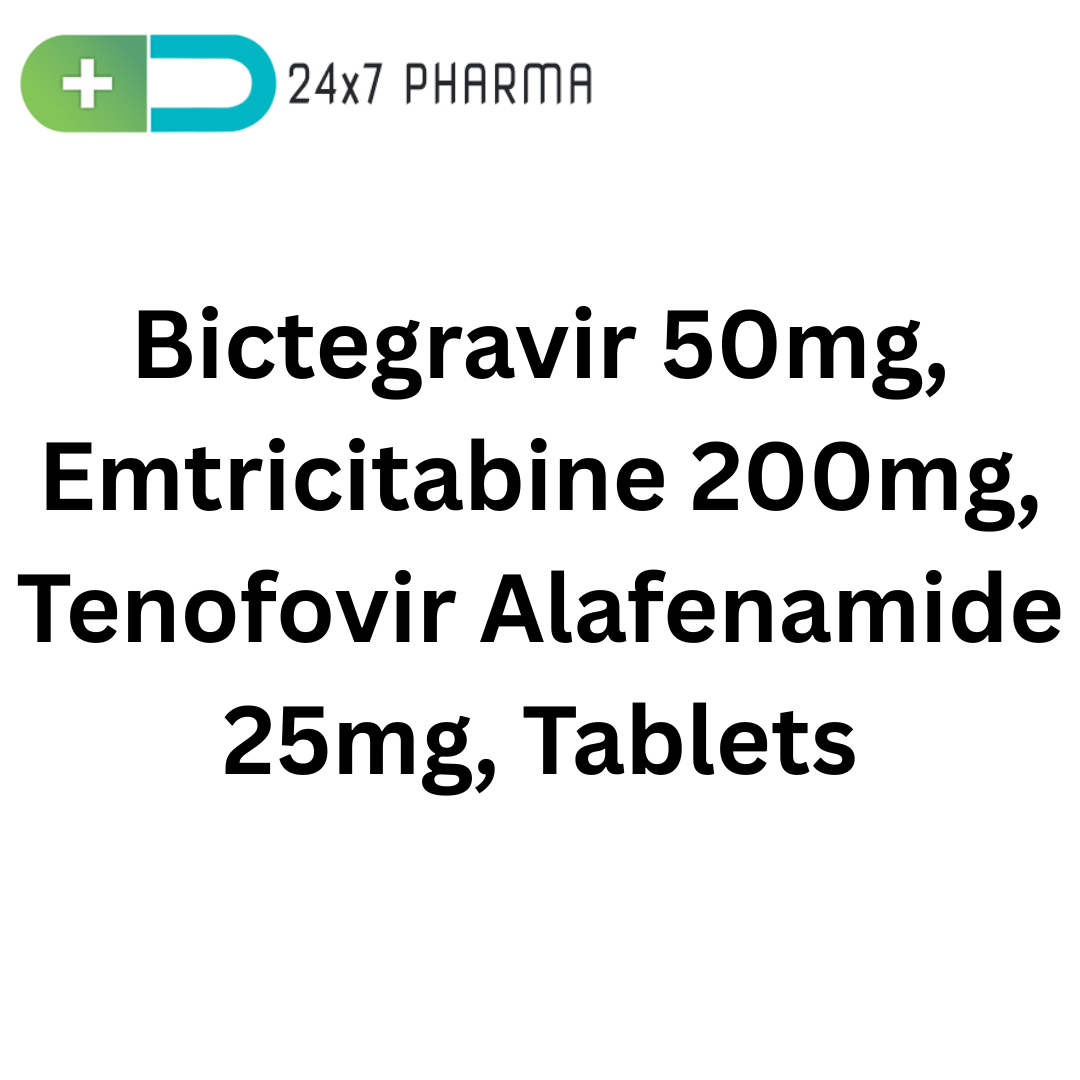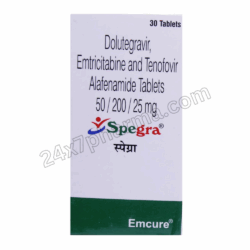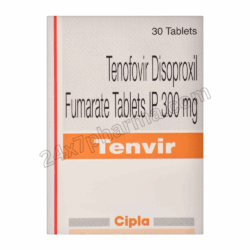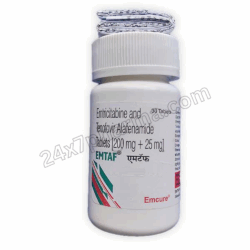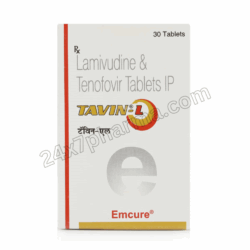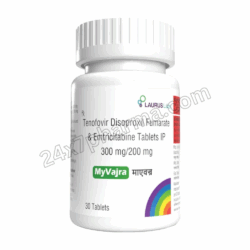Biktarvy (Bictegravir Emtricitabine Tenofovir Alafenamide) Tablets
Biktarvy is a fixed-dose combination tablet containing three antiretroviral agents: bictegravir (50 mg), emtricitabine (200 mg), and tenofovir alafenamide (25 mg). This combination is primarily used for the treatment of HIV-1 infection in adults and pediatric patients weighing at least 25 kg. By targeting different stages of the HIV replication cycle, Biktarvy offers a potent regimen to suppress viral load and maintain immune function.
What is Biktarvy?
It combines three antiretroviral drugs:
- By inhibiting the HIV-1 integrase enzyme, bictegravir, an integrase strand transfer inhibitor (INSTI), stops viral DNA from integrating into host cells.
- Emtricitabine: A nucleoside reverse transcriptase inhibitor (NRTI) that inhibits HIV-1 reverse transcriptase, leading to premature termination of viral DNA synthesis.
- Tenofovir Alafenamide: A prodrug of tenofovir, an NRTI, that is converted intracellularly to tenofovir, which then inhibits reverse transcriptase and causes chain termination during DNA synthesis.
Mechanism of Action
Each component of Biktarvy targets a specific step in the HIV replication cycle:
- Bictegravir: Inhibits the strand transfer activity of HIV-1 integrase, preventing the integration of viral DNA into the host genome.
- Emtricitabine: Acts as a chain-terminating nucleoside analog, inhibiting reverse transcriptase and preventing viral DNA synthesis.
- Tenofovir Alafenamide: Converted to tenofovir intracellularly, which inhibits reverse transcriptase and leads to chain termination during DNA synthesis.
- Indications
It is indicated for:
- HIV-1 infection treatment for children and adults weighing 25 kg or more.
- Use as a complete regimen for the treatment of HIV-1 infection, not to be use with other antiretroviral agents.
Dosage and Administration
Adults and Pediatric Patients ≥25 kg: One tablet (50 mg bictegravir/200 mg emtricitabine/25 mg tenofovir alafenamide) taken orally once daily with or without food.
Side Effects
Common side effects may include:
- Headache
- Diarrhea
- Nausea
- Fatigue
Serious side effects can include:
- Liver problems
- Kidney problems
- Bone problems
- Immune reconstitution inflammatory syndrome (IRIS)
Storage
Keep it firmly sealed in its original container at or below 30°C (86°F). The desiccant packet should not be take out of the bottle.
Benefits
Biktarvy offers several benefits:
- Once-daily dosing improves adherence.
- Fixed-dose combination reduces pill burden.
- High barrier to resistance.
- Well-tolerated with a favorable side effect profile.
Prescription
Biktarvy is a prescription medication and should be used under the supervision of a healthcare provider. Regular monitoring of kidney function, liver enzymes, and bone mineral density is recommend during treatment.
Drug Interactions
Biktarvy may interact with other medications, including:
- Magnesium or aluminum-containing antacids should be taken at least two hours prior to Biktarvy or six hours following it.
- Iron or calcium-containing supplements or antacids (which should be take with food concurrently with it).
- Bicentegravir levels may be impacted by medications that stimulate or inhibit the CYP3A or UGT1A1 enzymes.
FAQs
Can Biktarvy cure HIV?
No, Biktarvy does not cure HIV but helps to control the virus and maintain a low viral load.
Can Biktarvy cause side effects?
Yes, common side effects include headache, nausea, and diarrhea, but serious effects are rare.
Conclusion
Biktarvy is an effective and convenient treatment option for managing HIV-1 infection. Its once-daily dosing and fixed-dose combination simplify treatment regimens, improving patient adherence. Regular monitoring and consultation with a healthcare provider are essential to ensure optimal outcomes.

